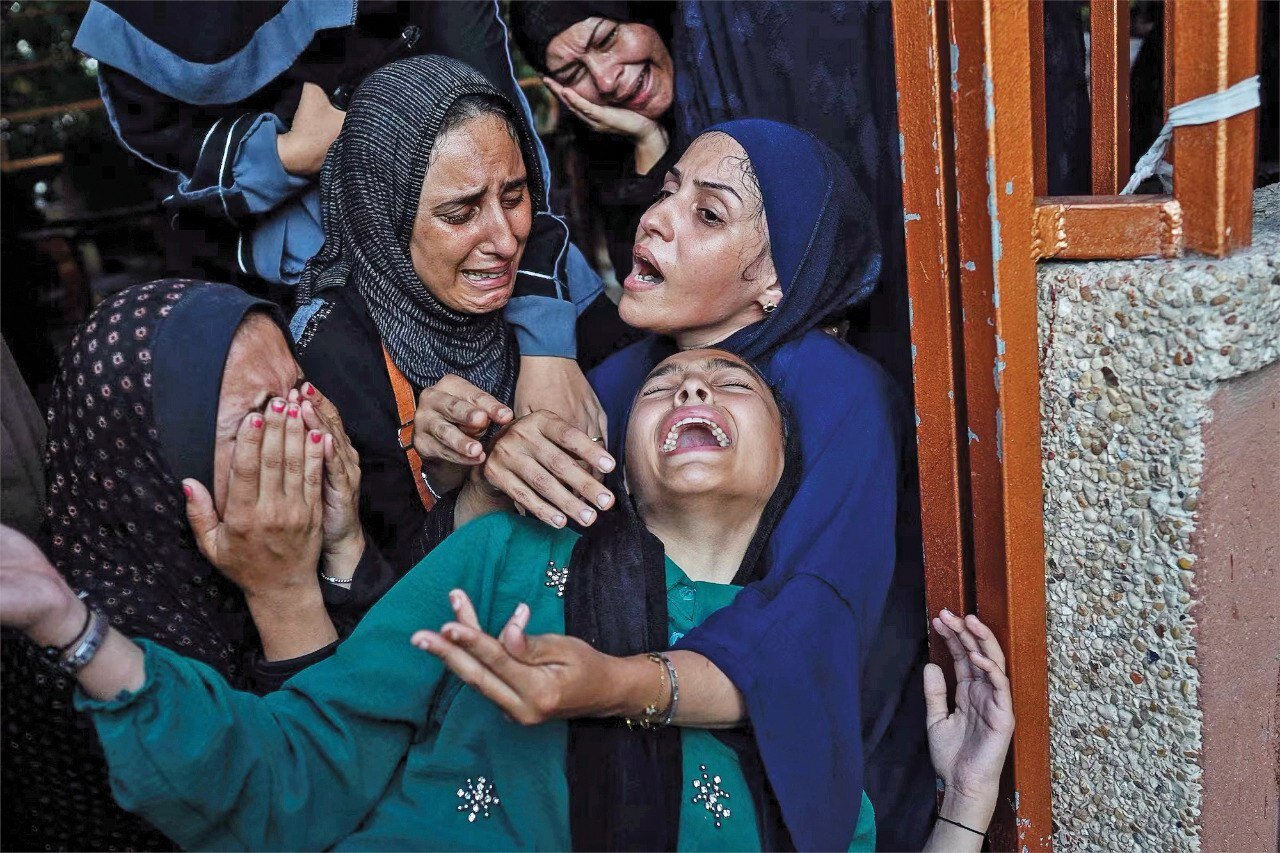The Israeli version of woman, life, freedom
BiBi sends message of peace to the Iranian after murdering 10,000s of Palestinian women and children

TEHRAN – As Israeli Prime Minister Benjamin Netanyahu struggles to break the logjam in its regional war campaign, he is looking for off-ramps that would help him avoid a direct military conflict with Iran so he can heed his criminal forces’ failures in Gaza and Lebanon.
In a video message released on Tuesday, Netanyahu looked tired and defeated as he called on those who participated in riots that rocked Iran in the fall of 2022 to persevere and not allow their “dreams” to “die”.
“I hear your whispers. Women, life, freedom,” he said before repeating the infamous slogan in Persian. “Don’t lose hope,” he added.
What were the 2022 riots about?
The death of a young Iranian woman called Mahsa Amini in the fall of 2022 became the catalyst for protests that very soon turned into deadly riots. Amini lost her life a couple of days after being taken into custody by Iranian police. Footage shows her collapsing inside a police station while speaking to a female officer.
Speculation about why she collapsed began soon after she was transferred to a Tehran hospital. In a video released by Iran’s judiciary months after her passing, Amini’s father can be seen next to her daughter’s hospital bed confirming to a judiciary official that he sees no injuries to her, as had previously been announced by the medical staff.
Amini’s eventual passing, however, became the event the West and Israel needed so badly to wreak violence inside Iran. Medical doctors residing outside the country used her scans to claim Amini had been beaten up by police, giving Western media a hand in forming a narrative that made the public angry. “To be honest, Mahsa Amini’s brain scans showed no signs of injuries. The only thing visible was the indication of a previous surgery,” said an Iranian-American doctor with a large social media following on X, a year after the young woman passed. “I did not want to announce this during the time because I did not want to hurt the movement,” he added.
The riots that killed about 300 people, including around 100 security forces, fizzled some time by the end of the fall due to a lack of resonance with the general public. Thousands of rioters, the majority of whom were in their late teens or early twenties, were also released from jail under an order by the Leader of the Islamic Revolution the same year.
What is Netanyahu looking for?
Netanyahu said he is willing to help Iranian women pursue their “rights” a year after he began what’s been labeled as a full-on genocide in the besieged Gaza Strip. The politician's war efforts have so far killed tens of thousands of women and children, with thousands more expected to join the carnage.
Despite being his characteristically deceitful and condescending self in the Tuesday message, Netanyahu differed starkly from his previous aggressive address in August, where he told Iranians the “long arm of Israel" could reach any point within their country.
According to Mahdi Mohammadi, national security advisor to Iran’s Parliament Speaker Mohammad Baqer Qalibaf, Netanyahu's public posturing of military confrontation with Iran is a smokescreen. Mohammadi, speaking to the Tehran Times, believes Israel's true strategy is to pressure the United States into resuming a more aggressive "maximum pressure" campaign against Iran, relying on sanctions and intelligence operations to destabilize the country.
He argues that both Netanyahu and incoming U.S. President Donald Trump understand a full-scale military conflict with Iran would be uncontrollable and spiral into a regional war, a scenario they wish to avoid. "Netanyahu's message is essentially a signal to Trump's team that Israel has not changed its main strategy regarding Iran and does not intend to create a strategic diversion," Mohammadi stated. He anticipates a renewed focus on Iran's internal affairs under the new U.S. administration, but adds that Iran has learned from past experiences and will not passively accept such pressure. Iran, he says, will formulate its own strategic response.
